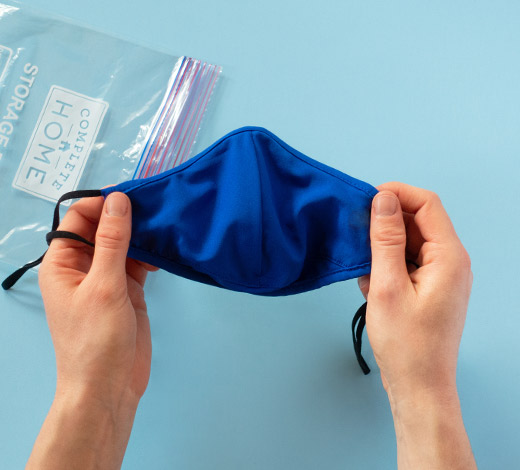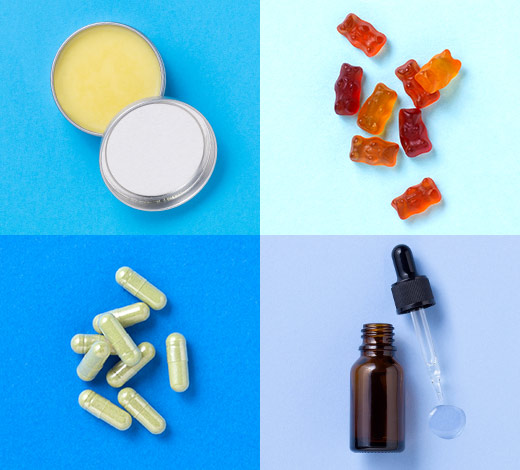Rumors that using deodorants and antiperspirants can lead to health problems have circulated for decades. In particular, aluminum-based compounds, which are commonly used as an active ingredient in antiperspirant, have received a lot of the blame. Before you swap your antiperspirant for one that doesn’t contain aluminum, learn what the research says.
Deodorant and antiperspirant basics
Antiperspirants work by reducing perspiration. The aluminum-based compounds in antiperspirants temporarily plug the sweat ducts to help keep the skin’s surface dry. Many antiperspirants also include a deodorant to help neutralize odors. However, some products contain just a deodorant or only an antiperspirant, so you can choose to use one and not the other. Unlike antiperspirants, deodorants don’t reduce wetness.
Breast cancer concerns
One reason why people worry about antiperspirant use is because about half of breast cancers develop in the upper outer quadrant of the breast. This is the part closest to the underarm area where antiperspirants are frequently applied. This leaves some people to wonder if the ingredients found in these products find their way into the breast tissue. However, the upper outer quadrant is also the part of the breast with the most breast tissue. So, it makes sense that this is the area where most breast cancers form. The number of breast cancers diagnosed in this location is in proportion to the amount of breast tissue there.
There are also thoughts that since aluminum compounds in antiperspirants reduce perspiration, it can build up in the underarm lymph nodes, where the lymph nodes are unable to sweat the substance out. Because the lymph nodes are close to the breast, people fear that the accumulation of aluminum may trigger changes in estrogen receptors of breast cells. Estrogen is known to promote breast cancer cell growth. However, the lymph nodes do not release waste or toxins through sweating and, in fact, aren’t even connected to the sweat glands. Most cancer-causing substances are removed from the blood by the kidneys and liver and leave the body through urine and feces.
It also isn’t known exactly how much aluminum is absorbed through the skin. One study found that so little aluminum was absorbed through the skin from antiperspirant use than would be expected from aluminum exposure in foods eaten at the same time (the average adult in the United States eats about 7–9 mg of aluminum per day in their food). What’s more, other research shows that breast cancer tissue doesn’t appear to contain any more aluminum than healthy, normal breast tissue.
While these and other claims have raised concern over aluminum in antiperspirant, there doesn’t appear to be a direct connection between the ingredient and breast cancer risk. In fact, there is no conclusive scientific evidence that shows using antiperspirant that contains aluminum increases the risk for breast cancer.
Aluminum and Alzheimer’s disease
For decades, there have also been claims that aluminum in antiperspirants, aluminum cans, antacids and other items may be linked with Alzheimer’s disease. This belief stemmed from the findings of a few studies done in the 1960s. They found that people with Alzheimer’s disease had higher levels of aluminum in their brains. However, we now know that very little, if any, aluminum gets absorbed by the body through antiperspirant use. And since then, further studies haven’t been able to replicate the results of the earlier research. Aluminum has essentially been ruled out as a contributing factor to Alzheimer’s disease.
Antiperspirant and kidney disease
There are also concerns over aluminum in antiperspirants worsening existing kidney disease. Years ago, people with kidney disease who were on dialysis often received a medication called aluminum hydroxide. Since their kidneys were impaired, their bodies couldn’t filter out the aluminum fast enough, and the aluminum built up. The people with high levels of aluminum in their bodies were more likely than others to develop dementia and bone disease.
Because of this risk, the U.S. Food and Drug Administration requires manufacturers to include a warning on antiperspirant labels that people with kidney disease should ask a doctor before using the product. However, this risk is only meant for people with stage 4 or 5 chronic kidney disease. Plus, the National Kidney Foundation notes that it’s essentially impossible to absorb enough aluminum through antiperspirant use to harm your kidneys.
The takeaway
Even though aluminum in antiperspirant has gotten a bad rap, there aren’t any quality studies to date that show a cause and effect relationship between using aluminum-containing antiperspirants and developing breast cancer or Alzheimer’s disease. In addition, aluminum in antiperspirant may only be a concern for people with advanced kidney disease. Still, if you’d rather not use aluminum, consider using a deodorant-only product instead of a deodorant and antiperspirant combination. If you’re worried about breast cancer or Alzheimer’s disease, talk to your health care provider. They can recommend ways to reduce your risk and discuss screening.
Sources
“Antiperspirants/ Deodorants and Breast Cancer,” National Cancer Institute. Web. 22 May 2018. https://www.cancer.gov/about-cancer/causes-prevention/risk/myths/antiperspirants-fact-sheet
“Antiperspirants and Breast Cancer Risk,” American Cancer Society. Web. 22 May 2018. https://www.cancer.org/cancer/cancer-causes/antiperspirants-and-breast-cancer-risk.html
“Alzheimer’s Myths,” Alzheimer’s Association. Web. 24 May 2018. https://www.alz.org/alzheimers_disease_myths_about_alzheimers.asp
“Public Health Statement for Aluminum.” Department of Health and Human Services, Public Health Service. Agency for Toxic Substances and Disease Registry. Web. 24 May 2018 https://www.atsdr.cdc.gov/ToxProfiles/tp22-c1-b.pdf
“Antiperspirants,” National Kidney Foundation. Web. 24 May 2018. https://www.kidney.org/atoz/content/antiperspirants
“Does Deodorant/Antiperspirant Cause Breast Cancer?” Dana-Farber Cancer Institute. Web. 24 May 2018. http://blog.dana-farber.org/insight/2014/02/does-deodorantantiperspirant-cause-breast-cancer/


